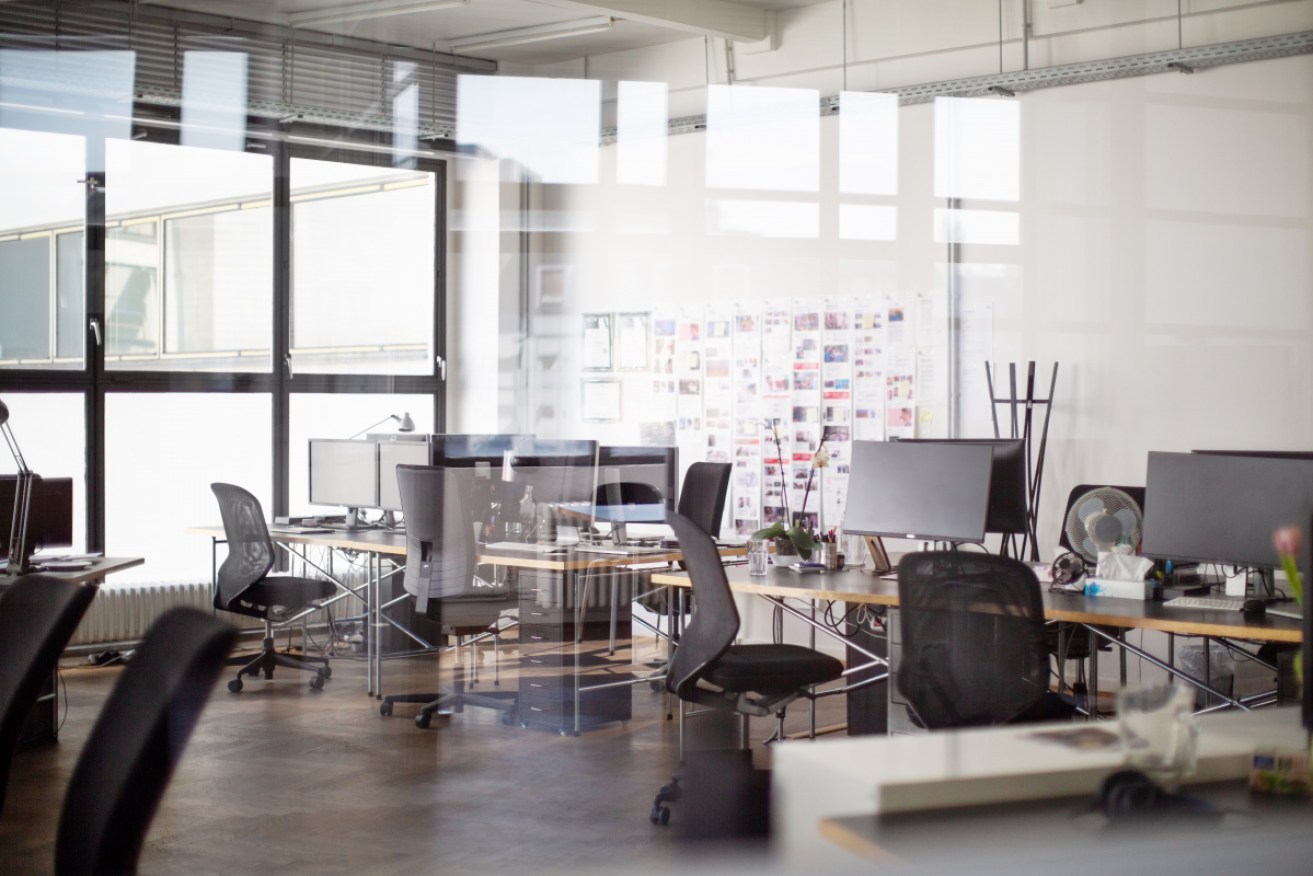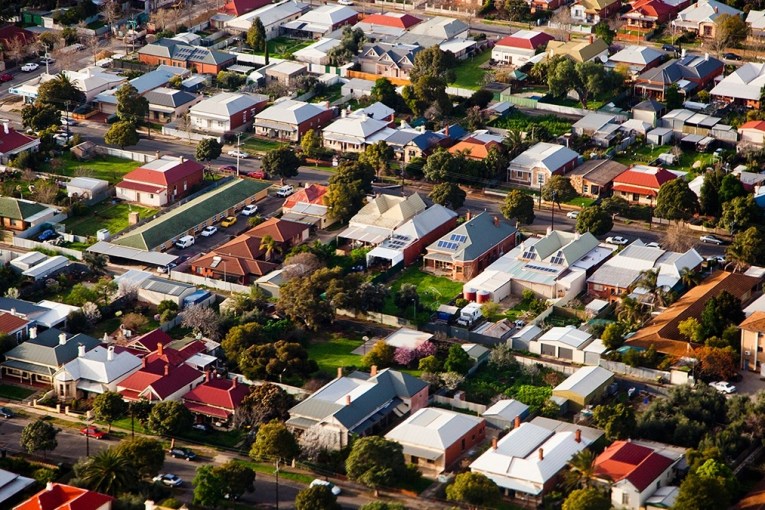Commercial property market braces for big hit as workers abandon offices


Remote working is experiencing an unprecedented boom. And it could place downward pressure on office space demand. Photo: Getty
The working-from-home boom has sparked a dramatic shift in workplace culture and could have serious implications for the commercial real estate market.
Although coronavirus’ long-term impact on the Australian office market remains to be seen, early signs suggest there will be big changes.
JLL Research found national office space absorption fell 51,800 square metres in the first quarter of 2020 – the largest decline since 2014.
Vacancy rates in CBD offices also rose 0.1 percentage point to 8.4 per cent.
The weak figures coincide with new findings suggesting more Australians have grown accustomed to juggling Zoom conferences with household duties.
Tweet from @benedictevans
LinkedIn survey results released on Monday found two-thirds of workers have been asked to work remotely by their employer – and 63 per cent hope those arrangements continue post-pandemic.
(Another report found almost half of the workforce would work from home even after the virus is gone.)
A dip in office space demand is ‘inevitable’
Commercial real estate firm CBRE said a major hit to the office market was “inevitable” given Australia’s unemployment rate is expected to soar into double digits.
CBRE Pacific regional director in office leasing Mark Curtain said the fastest-growing markets in Melbourne and Sydney would bear the brunt of the slowdown.
And University of Melbourne associate professor in property and management Chris Heywood told The New Daily the remote working renaissance would cause larger firms to reconsider their needs.
Tweet from @berndschiffer
Professor Heywood said future falls in demand for office space were difficult to predict, as they would be determined by the length of the recession and the number of workers seeking permanent flexibility.
But he said these falls could be offset by companies wanting to lease more space to comply with 1.5-metre social distancing rules, which could be enforced long after lockdowns have lifted.
“The possibility of remote working, which was talked up for 20 or more years, is now a reality for many,” Professor Heywood said.
“Large corporates, which have been moving to activity-based working in recent times, now have greater flexibility and will start questioning how much real estate they actually need to support a physically present workforce in the office.”
Smaller firms poised to downsize first
IBISWorld senior industry analyst James Thomson said smaller companies coming to the end of their lease would be more inclined to reduce their overheads amid the economic uncertainty.
This could prompt them to downsize their office space and ask more of their staff to work remotely.
“Companies that are already equipped and have the technology and infrastructure in place to provide flexible work, particularly professional service firms and smaller start-ups, would be able to accelerate their transition,” Mr Thomson said.
“For larger companies with longer-term, multi-year leases in place, their decision-making process will take more time … but this [lockdown] can help them gauge how the shift to [remote work] impacts their productivity.”
Tweet from @UTSSocialImpact
“We’ll also see a shift in office layouts – we recently saw a shift towards more hot desking, but people may be inclined to request their own specific space once restrictions are lifted.”
Co-working spaces may stand to gain
CBRE’s Mr Curtain said declining interest in traditional office spaces could herald the rise of shorter-term leasing arrangements and co-working spaces.
“Tenants, both large and small, want co-working and flexible offerings to ensure they can adapt to changes in business conditions, or to align a lease expiry with the term of a project,” Mr Curtain told The New Daily.
“The [coronavirus] has halted the expansionary [office space] activity that has taken place over the past five years, and this is not a bad thing.”
But CBRE Pacific head of workplace strategy and change management Nicole Fitzgerald warned co-working hubs will need a major overhaul to meet the community’s expectations around health and social distancing.








